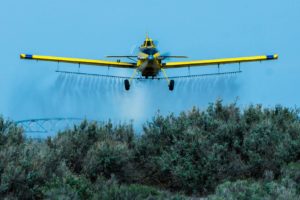 An ethical debate is a bit of a juxtaposition. As we know ethics are a set of moral principles. It is how we understand right from wrong. So how can what is right and what is wrong be up for debate? In Carl Sigel’s post on the “Caring for Creation” section of the Church of the Nativity webpage he discusses the two main types of ethical practices in the agricultural world. Continuing with the use of Robert Zimdahl’s term “productionist ethic” and Aldo Leopold’s term “land ethic” we place in front of us two incredibly distinct approaches to the western agrarian world. How can these two beliefs of right and wrong differ so greatly when talking about the same industry?
An ethical debate is a bit of a juxtaposition. As we know ethics are a set of moral principles. It is how we understand right from wrong. So how can what is right and what is wrong be up for debate? In Carl Sigel’s post on the “Caring for Creation” section of the Church of the Nativity webpage he discusses the two main types of ethical practices in the agricultural world. Continuing with the use of Robert Zimdahl’s term “productionist ethic” and Aldo Leopold’s term “land ethic” we place in front of us two incredibly distinct approaches to the western agrarian world. How can these two beliefs of right and wrong differ so greatly when talking about the same industry?
One argument I have read in favor of the productionist paradigm and its “ethics” is that with more high-tech input (which the 21st century seems to be quite proud of) comes more output. With more output can come the food justice of ending hunger around the world. Now this comes with the assumption that food distribution is equal and fair. That sounds very ethical at first glance. Unfortunately, however, food is not evenly distributed in our own state let alone the world.
An article published by CNBC in 2013 appropriately named “A hungry world: Lots of food, in too few places” argues that we have 2 to 3 times the amount of food that is needed to feed the global population. On top of food distribution we have the issue of financial means to buy the food.
My question is: Does the ethical argument of the productionist paradigm outweigh the effects of its “high-tech input”? Often the input required to produce large scale farming of the same crop on the same land year after year is devastating to the land and surrounding communities. Fertilizers, pesticides, insecticides and livestock waste (which are often supplemented by antibiotics and hormones) are just a few of the contaminants that can harm the soil, water, and air in and around the farms. In my opinion, no, the pros do not outweigh the cons but maybe there is another ethical advantage of the productionist agriculture that will convince me otherwise. Or maybe not.
Written by Michelle Peedin, NCIPL Program Associate
 Michelle was born in Durham and raised in Hillsborough, North Carolina. She continued her education at UNC Chapel Hill where she graduated with a degree in Global Studies with a concentration in Economics, Trade and Development. Identifying as half Peruvian, Michelle’s area of study was Latin America. She was blessed with the opportunity to study in Ireland and volunteer in Costa Rica during her undergraduate time. She continued her journey as a fellow at Student Action with Farmworkers, a non-profit organization in Durham, NC. Michelle is excited to reflect on and empower the communities in NC to push forward for social and environmental justice. She enjoys weekend trips, reading, arts & crafts, and sushi.
Michelle was born in Durham and raised in Hillsborough, North Carolina. She continued her education at UNC Chapel Hill where she graduated with a degree in Global Studies with a concentration in Economics, Trade and Development. Identifying as half Peruvian, Michelle’s area of study was Latin America. She was blessed with the opportunity to study in Ireland and volunteer in Costa Rica during her undergraduate time. She continued her journey as a fellow at Student Action with Farmworkers, a non-profit organization in Durham, NC. Michelle is excited to reflect on and empower the communities in NC to push forward for social and environmental justice. She enjoys weekend trips, reading, arts & crafts, and sushi.
Contact Michelle: michelle@ncipl.org
